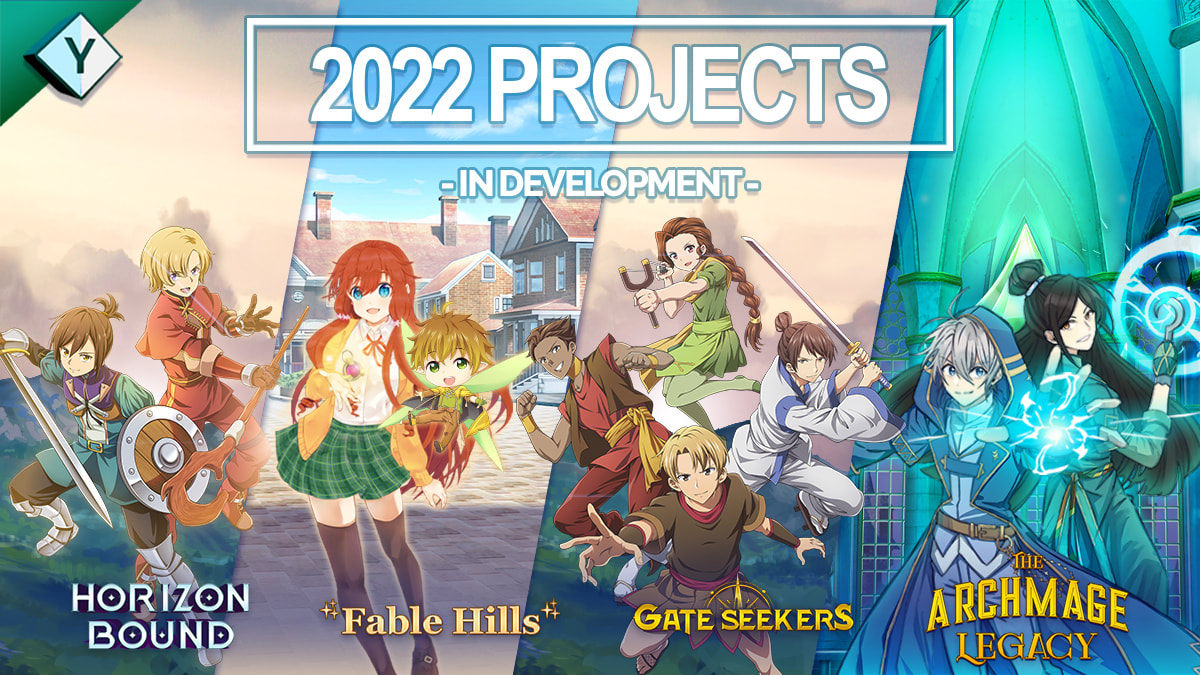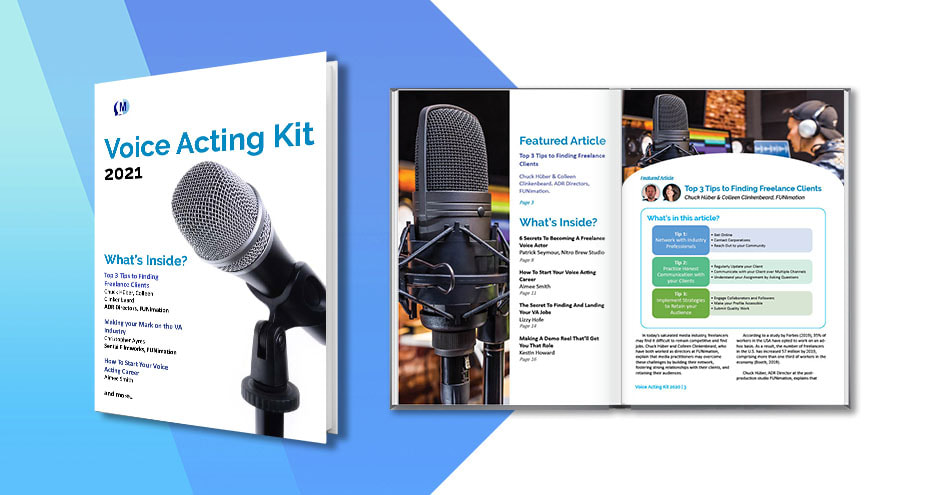Making your Mark on the VA Industry - Christopher Ayres, ADR Director, Sentai Filmworks, FUNimation2/4/2020
An animated project is produced by a dedicated team, and some of its most talented contributors are behind the microphone. Christopher Ayres shares about being an ADR Director and scriptwriter at Seraphim Digital/Sentai Filmworks, Funimation, OkraTron 5000 and New Generation Pictures. What are your roles and responsibilities?As a voice actor, it is my job to realize both the creator's and the director's vision of the character and provide the localized English voice for that character. As an ADR director, I feel my chief job is to be the caretaker of an anime as it navigates the dubbing process, which is a huge responsibility to me. While people often become upset when the lines in a dub are not a direct translation from the source material, various words and phrases have a completely different meaning in one language than in another. For me, I believe a huge part of my job is determining the creator's intent, whether it is to make you laugh, cry, cheer, scream, etc. and deliver that feeling to the English audience. Emotion transcends all languages, so I think any good ADR director conveys emotion, not just words. What were the challenges you faced when you started as a professional actor and director? As odd as it is to say, for both acting and ADR directing, it would be inexperience. Keep in mind, I have been working professionally as an actor for almost 50 years, and as a stage director for about 30. What I am talking about is inexperience in these crafts. Just as acting and directing for stage is different when it comes to film, voice acting was extremely different than anything I had done before. I describe voice acting for anime like doing Shakespeare in terms of intensity, honesty, commitment and passion, but in a black box theater (so there IS such a thing as going to “big" or overacting, despite what some say.) As for directing, for theater I had to cast, stage, direct the actors, oversee the designs (i.e. sets, lights, costumes, props, etc.) and a billion other things that any stage director will confirm. As an ADR director, I have to cast the show, make sure the script works, ensure the script fits the mouth flaps, and make sure the acting is where I feel it should be. While I personally feel like I am not as frantic when I am ADR directing than when I am directing for stage, I would never call the job easier, less artistic, or less work. One of the (many) offenses I take with a studio I used to ADR direct for was when I was told that fans do not care about the acting, just get the words recorded and put on a DVD. This is a view that I truly hope to abolish one day. How do you maintain good relationships with your clients and collaborators?This is a hard question for me. I haven't heard from so many of my friends since I got sick and had to take a break from directing, that my initial advice would be “stay useful to them.” In all seriousness, there have been so many instances with my former company where I went along with decisions they made despite them being clearly wrong or abusive, that I find myself no longer able to sleep at night or look at myself in the mirror. I maintained good relationships with them for years by turning my head to their actions out of fear for my job, finances and the well-being of my family. I watched them ruined lives, and instead of advocating for the actors I sought to always be a mentor to, I'd hand them a cigarette and tell them that's showbiz. My first piece of advice is a lesson I wish I learned years ago; make sure that your actions in this industry allow you to maintain a good relationship with yourself. On a more positive note, when I am working on a show, I regard it as the most important creative work to ever exist, and do my best to treat it accordingly. When I am working with an actor, I regard them as the best actor who ever lived, fully capable of anything and everything I ask for. Believe in something or someone, and you will be amazed at how it soars to live up to those beliefs, and people tend to appreciate that. How should aspiring voice actors/directors start their careers? Many people forget that the operative word in “voice acting" is “ACTING,” not voice. You need to get as much acting training as you can, classes, workshops, and never stop training. There are often classes at schools, theaters, or through private coaches, so everyone can find what works best for them. Never let someone tell you that you are not an actor unless you have a theater degree. I think this is a pretentious and horribly incorrect assumption. However, it is just as harmful to your potential to assume that a theater degree entitles you to work without continuously honing your craft. There are so many ways to improve and develop your abilities as an actor. Granted, there are also ways NOT to do it. Do not think that if you watch enough anime you'll suddenly be able to be a successful voice actor. Do not think that you will be picked up and whisked away to a studio after showing me your impression of Homer Simpson at a convention or while I am trying to enjoy a candlelit dinner with my cat and my girlfriend. Despite what we often say (myself included), we are not our worst critics. We love the sound of our voice. Practicing alone in your room will never prepare you as thoroughly as doing so with a coach, peer or audience to offer feedback. As far as specific training goes, I highly suggest studying improv. Basic improv training will prepare you as a voice actor in more ways than I can probably even recall right now. But the audition process and nature of the recording itself makes improv training absolutely indispensable. I have never met an improv-trained voice actor who disagrees with this. Many people ask for my advice about this. Very few people follow it. I have heard so many excuses, but the most prevalent is “I’m too nervous to act on stage, I just want to do anime.” This mindset will limit you. Not only will it prevent you from learning valuable skills that may set you apart from other actors, but it will make directors wonder you think voice acting is the “easy" or lessor form of acting. I don’t want an actor who “settles" for working with me. ADR directing is definitely a harder path, but the pool of directors I know comes from a more varied background; acting, engineering, advertisement, and office staff to just name a few. However, I do recommend at least some directing experience before you start. I also cannot recommend finding a mentor strongly enough. I have learned some of my best practices by observing people who are very good at their job, at theaters, schools, and Funimation (I have never directed for Funimation, but have worked with some amazing directors as an actor and found myself picking up some of their many good habits). A personal thing I love to do is listen to the director commentaries in films. It really gives you a great idea about how some of your favorite minds think. What tips would you give aspiring voice actors/directors who would like to work for FUNimation in the future? First of all, I have not directed anything at Funimation, but as an actor I can say they are a fantastic and ethical company to strive for. But, my advice will therefore be for ADR directing in general. A lot of directors and actors have spoken about the importance of classes, experience, demo reels and agents (all often giving excellent advice), so I'd like to explore the more social aspects of getting into the industry. My number one piece of advice is the same for any person, in the industry or not; be a decent person. All too often I meet actors who treat getting work like winning the Game of Thrones, sabotaging, neglecting and abandoning their peers whenever it suits them. Those are the people who (normally) have the least longevity in this industry, because directors can recognize that behavior and we do NOT find it cute or charismatic at all. I cannot even count how many parties and dinners I've been to where an actor will completely drop the friend (usually another actor) who invited them and spend the entire night speaking only to me and other directors. That is not networking. That is being a bad friend. We also recognize when we and our loved ones are being used. While I will always hire the actor I feel is best for the part, I am far more reticent to consider someone who I know was kind to me or my friends/family just to get in the booth. As actors and directors, it is part of our job to look at the real motives swirling around beneath a person's actions. It is pretty easy to see when someone is not being authentically kind. People often mistake my kindness for naiveté and assume that 15 minutes of talking to me about Doctor Who, improv, or horror movies will guarantee them a job. While I will always be civil, and only tell someone I know they're putting on a show if they ask, plenty of people have shot themselves in the foot by trying to bypass an organic introduction and become my best friend in order to get work. I don't hire good friends, I hire good actors and strongly prefer to hire good people.
VA DirectoryWant to try out for more characters? Leave your demo on our site, and we'll contact you if there's a role you're suited for. Comments are closed.
|



